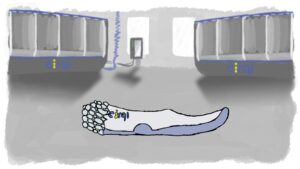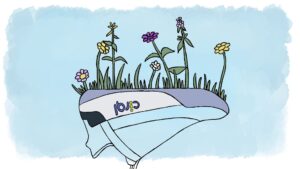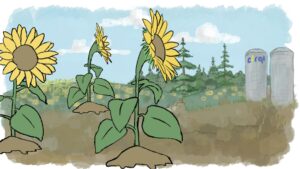The Future of Sustainable Footwear is Circular
OrthoLite Cirql Initiates a Circular Movement in Footwear
We believe the future of sustainable footwear is circular. In March of this year, OrthoLite introduced Cirql, a pure foam alternative to conventional plastic made with responsibly-sourced plant materials and biodegradable materials, and established a focus on the three primary tenets of a circular economy as defined by the Ellen MacArthur Foundation.
We set out to develop OrthoLite Cirql, a plant-based, recyclable, and industrially compostable solution for footwear with applications for midsole, insole, and upper materials. With the creation of OrthoLite Cirql, we set out with a singular mission: to improve the end of life for footwear.
Myopic? Yes.
Driven? Yes.
By design? Yes.
Pure genius? Absolutely!
We believe the future of sustainable footwear is circular. With Cirql, we’re not waiting for that future to arrive. We’re boldly kicking it off now.
Our philosophy for Cirql is based on the three primary tenets of a circular economy. As defined by the Ellen MacArthur Foundation, a circular economy is a framework that:
- Eliminates waste and pollution.
- Circulate products and materials in use at their highest levels.
- Regenerates nature.
1. Cirql provides solutions to eliminating waste and pollution.
OrthoLite Cirql is a two-part solution, addressing both the source polymer and the production process. Since we’ve created a scalable and repeatable technology, Cirql provides opportunities to footwear brands and their factories to profoundly mitigate waste and pollution on a widespread level.
Cirql Solutions:
- Cirql is made with responsibly-sourced plants and biodegradable materials.
- It is created with a chemical-free foaming process.
- The process is repeatable, consistent and scalable, without adding waste or pollution.
- Our Cirql Center of Excellence factory in Vietnam is solar powered.
- OrthoLite, inclusive of Cirql and all of our other sites and factories, has announced a bold initiative to achieve Zero Waste.
- All plastics shed microscopic bits called microplastics. Persistent microplastics from conventional plastics never break down. The result is that persistent microplastic residue is now found in human bodies, in animals, and in the most remote and pristine environments on earth.Cirql has non-persistent microplastics that will readily biodegrade in soil and water, even without managed treatment.
2. Cirql offers solutions to circulate products and materials at their highest levels, encompassing quality, performance and non-toxic, non-persistent components.

Single-life materials without a sustainable end of life solution have no place in a circular economy. It’s an enormous challenge for the footwear industry. The chemicals and the chemical structures of the conventional plastics used in footwear mean that they have no true end of life solution due to their chemical makeup.
Cirql Solutions:
- Cirql has two managed end of life solutions, each with its own benefits.
- One, Cirql can be industrially composted, and will readily biodegrade back into nutrient-rich compost.
- Two, due to its linear chemical structure, which differs from the cross-linked structure of conventional plastics, Cirql is depolymerizable. This means it can be recycled in perpetuity without losing any quality in the desired attributes.
- Importantly, Cirql is also free of any persistent, “forever” chemicals, so nothing toxic is leached in either process.
3. Cirql regenerates nature with a genuine soil-to-soil solution.
From the start, we set out to innovate a genuine soil-to-soil footwear solution: a product that experiences complete biodegradation without leaching or leaving toxic chemicals in its wake. With Cirql, we’re achieving it. It is a pure foam alternative to conventional plastic made with responsibly-sourced plant materials and biodegradable materials.

When properly disposed of at an industrial composter, Cirql leaves no physical trace of its existence, beyond nutrient-rich compost soil. It’s almost inconceivable, and yet it’s real.
The future is now. We invite you to join us.
Traditional linear economies focus on mitigation and offsetting negative impacts. In other words, even the most sincere sustainable efforts are often only treating the symptoms. In contrast, circular economies address the root of the problem.
Fundamental stepwise changes are needed to transform the overall process; change from beginning to end.
Circular economies rethink the destination, the pathways and the solution. While harm reduction remains a top priority, a more vibrant and long-view goal also emerges to optimize and increase positive environmental impacts.
No manufactured product can achieve absolute circular perfection. It will use resources to produce, to ship, and to market. There is always a footprint. Our responsibility is to work together to lessen the footprint and to close the loop.
With OrthoLite Cirql, we are moving in the right direction.
Join us.
